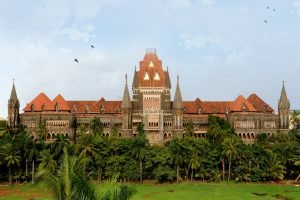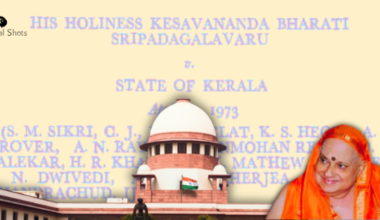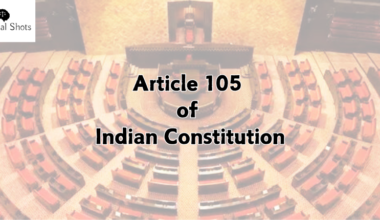Marriage is described as a Sacrament in India. Only death can put an end to the bond which has been created by parents’ and divine’s blessings. Marriage in India is not only between two individuals but between families, since family is given importance while choosing a partner for oneself. Two individuals getting married in the same caste or same religion is generally acceptable. But if the caste or religion is not the same, then they face societal backlash.
Special Marriage Act, 1954 – An Introduction
The Special Marriage Act, 1954 is a secular law curated serving the inter-faith marriages, where parties are not governed by any personal law like Hindu laws or the Muslim personal law. Under this Special Law, we will be discussing Solemnization of Special Marriages, Registration of Marriage, its consequences, Restitution of Conjugal Rights, Nullity of Marriage and Divorce, etc. Let’s thoroughly discuss every aspect of the Special Marriage Act, 1954 under this blog.
Applicability Of Special Marriage Act, 1954
The Special Marriage Act, 1954 Act extends to the whole of India including Jammu and Kashmir, as well as all Indian nationals living in other countries. Individuals of diverse faiths, such as, Muslims, Hindus, Parsis, Sikhs or Christians can marry under the Special Marriage Act and get their marriage registration certificates. The single requirement for being married is two consenting individuals who have attained the age of Court marriage.
Solemnization of Special Marriage
A Special Marriage can be solemnized between two individuals if the following conditions are fulfilled, as mentioned under Section 4 of The Special Marriage Act,1954:
- Neither party has a spouse living at the time of marriage.
- Neither party is incapable of giving valid consent;
1. Due to unsoundness of mind or,
2. Suffering from mental disorder of such kind or to such extent as to be unfit for marriage and procreation of children;
3. Due to recurrent attacks of insanity
- The male must have completed the age of 21 years, and the female must have completed the age of 18 years.
- The Individuals seeking to marry are not in the prohibited degrees of relationship.
Procedure for a Court Marriage
Registration of Marriage/Notice of Intended Marriages /Objection
In India, all marriages can be registered under their personal laws i.e. (Hindu Marriage Act, 1955 or Indian Christian Marriage Act, 1872) or under the Special Marriage Act, 1954 after solemnization of marriage in other forms. Under SMA, people from different religious faiths unite in the marriage bond. SMA provides both solemnization and legal registration of marriage.
When both parties intend to get married to each other under the Special Marriage Act, or in other words, when a couple decides to go for Court marriage, a notice in writing must be given to the Marriage Officer. The Marriage Officer keeps the said notice in his record book i.e. Marriage Notice Book which is open for inspection at all reasonable times by any person who desires to inspect the same.
If there is objection by any person regarding marriage on the grounds that any of the conditions mentioned above are recorded in writing Objections can be raised within thirty days from the date on which such notice has been published at some conspicuous place at the Marriage Officer’s Office. The inquiry by the Marriage Officer must not take more than thirty days to come to a decision, unless the objection is withdrawn. In case the Marriage Officer refuses to solemnize a special marriage pursuant to an objection, the couple may appeal against the decision before the District Court. The decision of the District Court is final and the Marriage Officer has to act in accordance with the same. If the objections made to intended marriage are unreasonable, a fine of thousand rupees may be imposed by the Marriage Officer, which may be awarded to the parties in full or in part.
Penalty Of Wrongful Action Of Marriage Officer
The Marriage Officer who proceeds with getting a couple married under the Special Marriage Act, while going against the provisions of the Act may also land in jail. Section 46 of SMA states that a Marriage Officer who knowingly and wilfully solemnizes a marriage under the Special Marriage Act, 1954 without publishing notice as required under the act or in contravention to any other provision is punishable with simple imprisonment for a term which may extend to one year, or fine which may extend to 500 rupees or both.
Declaration and Certificate of Special Marriage
The declaration form (schedule 3 of SMA) should be signed by three witnesses before solemnization of marriage in the presence of the Marriage Officer and countersigned by the officer too. The marriage should be solemnized either at the office of Marriage Officer or at the place where parties may desire – upon payment of additional fees. Solemnization and binding of marriage is not complete unless both the parties say “I, (A), take the (B), to be my lawful wife (or husband)” in the presence of Marriage Officer and three witnesses. The Marriage Officer then issues a marriage certificate signed by the parties and three witnesses, and it will be conclusive proof of the marriage under the Special Marriage Act.
When Marriage is not Solemnized
If marriage is not solemnized within three months of the notice given to the marriage officer or decision of Appellate Court on such appeal, then no marriage can be solemnized unless new notice has been given in the same manner again.
Consequences of Marriage under Special Marriage Act,1954 (SMA)
1. A member of an undivided family professing Hinduism/Buddhism/Sikhism/Jainism is considered to severe ties with their family after getting married under the SMA.
2. The Rights and Disabilities of person who marries under the Act are same as those of someone to whom The Caste Disabilities Removal Act, 1850 applies as regards the right to succession of property.
3. The succession to the property of persons married under The Special Marriage Act,1954 or Marriage registered under this Act and their children will be governed under The Indian Succession Act. Besides, parties to the special marriage who are Hindus as per the Hindu Marriage Act are unaffected by any disabilities in succession under the provisions discussed above.
Matrimonial Disputes and Special Marriage Act
Restitution of Conjugal Rights
When two individuals decide to get married under the Special Marriage Act, 1954, it’s their primary duty to cohabit under a matrimonial home to fulfill their matrimonial obligations. Women and men being the husband and wife, both have the right to each other’s society, love and affection. One cannot detain the other or forcefully pressurize the spouse to stay together since it’s not legal. However, when either spouse willfully withdraws from the society of the other without reasonable justification, the other may go to Court to restore his/her conjugal rights as provided under Section 22 of The Special Marriage Act.
Cohabitation doesn’t necessarily mean that parties live together under the same roof, but there may be cohabitation states where they see each other as much as they can and yet are not separated.
Judicial Separation under SMA
A petition for judicial separation may be presented to the District Court either by husband or wife on the grounds on which a petition for divorce might have been presented or on the ground to comply with decree for restitution of conjugal rights. The Court on being satisfied of the truth of the statements presented in petition granted the decree of judicial separation. This decree entitles the parties to live separately but it doesn’t break their marital status. None of them can remarry until they have a divorce decree. If cohabitation is not restored between the parties for a period of one year or more after passing the judicial separation decree, they can file for a petition for divorce.
Nullity Of Marriage And Divorce
The law of Nullity of Marriage is a judicial declaration that a marriage is legally non-existent and was never valid. It is different from divorce which is a legal declaration to end a valid marriage. The marriage is legally non-existent, either absolutely or relatively.
If there are absolute barriers, the marriage is void ab initio. Following are the barriers given below. The marriage under The Special Marriage is null and void when:
- Any of the conditions mentioned under section 4 of The Special Marriage Act is not fulfilled;
- The marriage is not consummated because of respondent being impotent
- Petitioner’s consent was obtained by fraud
- The respondent was pregnant by someone else at the time of marriage
- The marriage was incestuous
- Either party is unfit to procreate children.
If the barriers are relative, a marriage is voidable i.e. one of the parties to marriage may seek annulment of marriage if he or she wishes. A Voidable Marriage is a perfectly valid marriage until one of the parties contests in the Court for annulment.
Here, Annulment and Divorce are different from each other because Annulment means that marriage never existed, whereas Divorce means marriage existed and was completely a valid marriage but terminated by the parties.
Legitimacy of Children Under Void and Voidable Marriages
Children born in a Special Marriage are deemed to be legitimate children of their parents. If a marriage is not legally valid, children born from that marriage are considered legitimate (as if they were born to a legally married couple).
Punishment For Bigamy
If a person married under the Special Marriage Act, marries again while his/her spouse is alive and the marriage persists, such a person is liable of the offence of Bigamy. A person contracting another marriage during the lifetime of a spouse is punishable under Section 82 of the Bharatiya Nyaya Sanhita, 2023. In such a case, the consequent marriage is considered void under the Special Marriage Act, 1954.
Divorce
The word ‘Divorce’ is considered a taboo in our society, Yet, people those who are in an unhappy marriage should go for a divorce under The Special Marriage Act, 1954 and be free to marry again. One of the important aspects of divorce under Special Marriage Act is a person cannot file for divorce unless and until one year has expired from the date of their marriage. However, in exceptional cases where the petitioner faced extreme hardship or the respondent has shown extreme degradation on his/her part, a request of divorce can be proceeded with.
Grounds for Divorce under Special Marriage Act
The grounds for divorce are mentioned under Section 27 of the said Act. Let’s discuss them briefly for better understanding.
Adultery
It is one of the grounds for divorce under SMA, where a married spouse engages in a physical relationship with another in an extramarital affair.
Desertion
If the respondent deserted the petitioner for a period of more than 2 years without any cause, a petition for divorce of desertion as a ground can be presented before the court. Desertion means permanently abandoning a spouse without any justifiable cause. It means completely renouncing one’s marital obligations. Desertion does not mean to be not present at a place but from the things that are necessary for marital obligation.
Imprisonment
If the respondent is undergoing an imprisonment of more than 7 years for an offence defined under the Indian Penal Code (Now Bharatiya Nyaya Sanhita), the other spouse may seek divorce under SMA Section 27(1)(c).
Cruelty
The petitioner being treated with cruelty by respondent may get divorce under Section 27(1)(d). During divorce proceedings on the ground of cruelty, the character of respondent needs to be proved in such a way that he/she has mistreated the petitioner causing physical or mental cruelty.
Unsoundness of Mind
The burden of proving unsoundness of mind of respondent lies on the petitioner seeking divorce on such ground. The unsoundness of mind can be continuous or occurring at irregular intervals. The unsoundness of mind should be incurable, so that the Court can grant divorce to the petitioner.
Venereal Disease
If the respondent suffers from venereal disease in a communicable form, where it is not contacted from the petitioner, divorce may be sought under Section 2(1)(f) of the Special Marriage Act, 1954.
Leprosy
If the respondent is suffering from leprosy which necessary not communicable in nature and not contacted from petitioner, it can be grounds for divorce under SMA.
Spouse Not Heard Alive
If the spouse has not been heard alive for more than 7 years from the close relatives or from the persons who would have naturally heard him being alive, then the person is presumed to be dead. SMA allows divorce on such ground, provided that the burden of proving the person is dead lies on the person who asserts the fact.
No RCR or Cohabitation after Judicial Separation
Section 27(2) of the Special Marriage Act allows either party to marriage to seek divorce if they have obtained a decree for judicial separation and there has been no cohabitation for the past year. On the other hand, if there is no restitution of conjugal rights after passing of a decree within a year, divorce may be granted.
SMA – Divorce Grounds for Wife
A wife may also present petition in District Court for divorce if the husband is guilty of the Offence of Rape, Sodomy, Or Bestiality. .
The wife can claim divorce on the ground that she has obtained maintenance order and living apart from her husband, and does not plan to cohabit with husband in future.
Divorce By Mutual Consent
If the husband and wife who got married under the Special Marriage Act mutually and amicably decide to end their marriage, they may seek divorce under Section 28 of SMA. Both the parties have to present a petition before the District Court together, and state that they both are living separately for a period of one or more years. They have not been able to live together and mutually decided to dissolve the marriage. In such a case, the Court may provide ample opportunity of reconciliation through two motions within 6 months, and then grant a decree of divorce.
Remarriage under Special Marriage Act
When parties have divorced and there is no right to appeal available to either party, because the time period has lapsed or the appeal has been dismissed, the parties may marry again.
Alimony & Maintenance under Special Marriage Act
Where the court feels that the wife has insufficient means of income for her support and necessary expenses of proceeding, Court on an application by the wife orders the husband to pay her expenses of proceedings on a weekly or monthly basis, whatever seems reasonable to the Court. Husband should secure his wife for her maintenance and support by creating charge on husband’s property such gross sum or such periodical payment of money for a term not exceeding her life. The District Court can rescind/modify/cancel/alter the order with the change in circumstances of either party or if the wife got remarried.
The various provisions of Special Marriage Act, 1954 have been explained and simplified by Ms. Aanchal Jain, who is pursuing internship at Lawgical Shots. She is assisting the team in breaking down complex legal topics for one and all.








